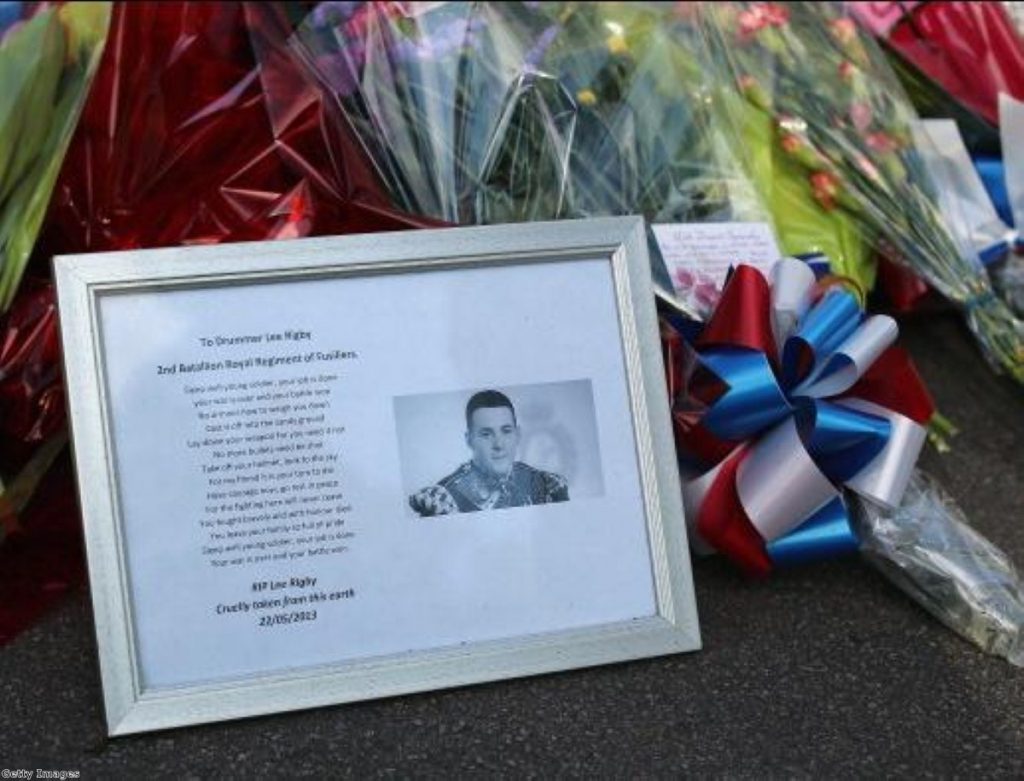Woolwich murder: Snoopers’ charter back on table
Home secretary Theresa May is using the post-Woolwich atmosphere to press for a revival of the so-called 'snoopers' charter'.
May and David Cameron are using the aftermath of the brutal murder of Drummer Lee Rigby last Wednesday to impose suffocating free speech bans on extremist clerics.
The pair are considering banning clerics from speaking in schools, colleges, prisons, mosques and other public areas. They are also seeking a lower threshold for banning extremist organisations outright.
Such moves will prompt freedom of speech concerns from civil liberties campaigners, but are likely to be met with approval by voters.
The British public is responding to last week's politically motivated murder by demanding tougher laws to curb incitement to terrorism.
A poll out today by Survation for the Mail on Sunday found 64% believe more needs to be done to prevent vulnerable people becoming radicalised. Sixty-three per cent now believe the death penalty should be reintroduced for terrorists.
"Intelligence agencies need access to communications data," she told BBC1's The Andrew Marr Show. "It is essential to do their job."
Plans to force internet providers to keep more information about phone calls and online communications were shelved when deputy prime minister Nick Clegg rejected them outright.
Now the Home Office has begun a campaign pressuring Liberal Democrats in government to implement at least some of the proposals.
A separate poll by YouGov for the Observer newspaper found the expectation of a serious clash between British Muslims and white Britons is up nine points to 59%.
There are already signs of unrest, with around 1,500 people taking part in an English Defence League march on Saturday. A further EDL march is planning in London for Monday.
Meanwhile question-marks continue to be raised about the extent of the intelligence services' knowledge of one of the alleged killers of Drummer Lee Rigby, who the Sunday Telegraph reported had appeared in court in Kenya on suspicion of involvement in terrorism.
Five hundred police officers are now working on the case. Latest assessments are reinforcing the 'lone wolf' thesis which suspects the chief suspects, Michael Adebolajo, 28, and Michael Adebowale, 22, were acting on their own.
Hazel Blears, the former communities secretary, said she feared the government's focus on stifling extremism wherever it appeared had prevented a broader approach focused on preventing communities from becoming vulnerable.
"Counter-extremism isn't just about tackling the people you already know are radicalised," Blears told the Observer.
"It is about trying to work with local communities before they get to that point so that good decent people in the community can protect young people from being groomed and getting these ideas in the first place and much of what was done in the Prevent programme was about empowering women, young people.
"The police have their own intelligence on the ground and they have neighbourhood policing.
"They are out and about in the community but in a way it is one side of the picture. Local authority, school governors, people in community groups will have their information as well. The difficulty is when that information is then portrayed as spying on people."





-01.png)